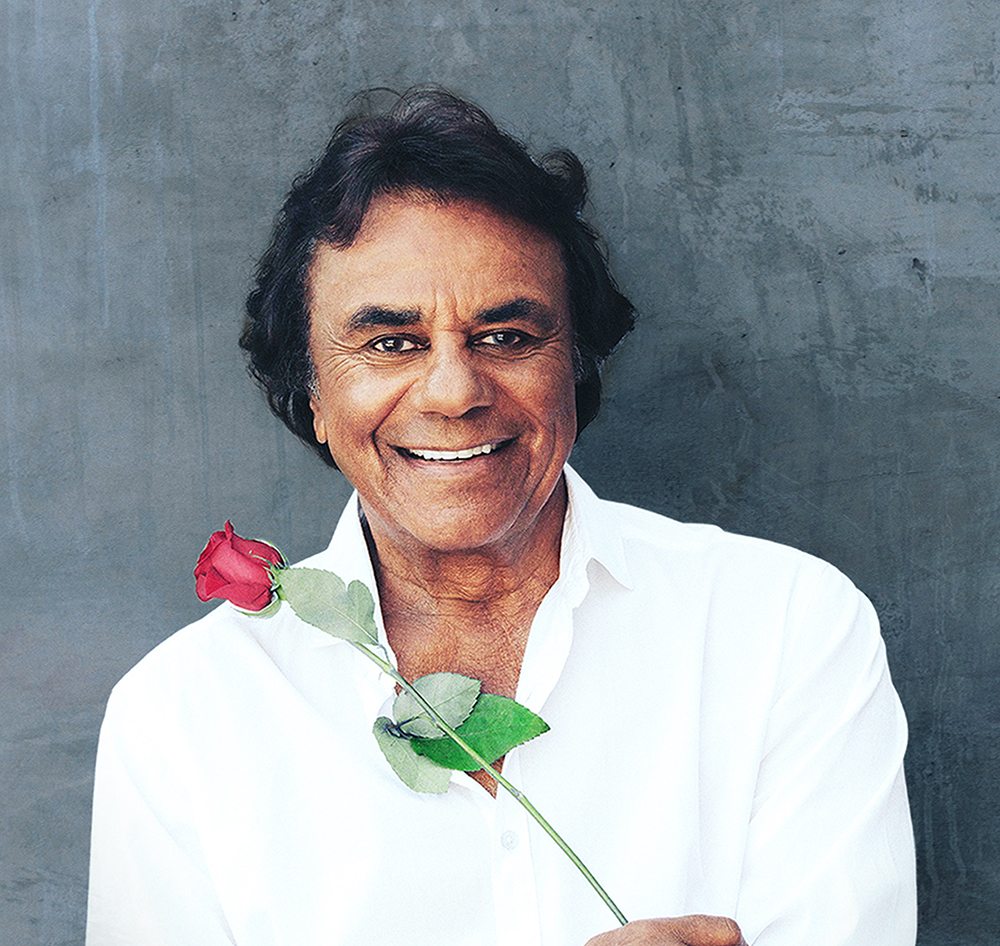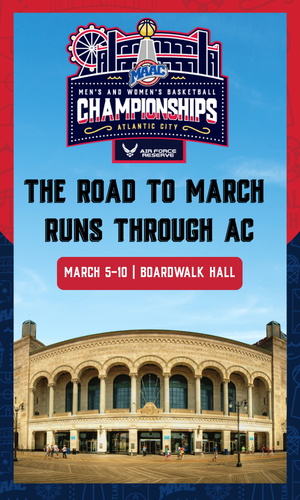By Bruce Klauber
Johnny Mathis is 89, and he still sounds like Johnny Mathis.
He has not, like other singers of his generation, stayed too long at the fair. His voice remains instantly identifiable and is among the most imitated in the history of show business.
If he seems to walk a bit slower these days, it’s because he has two titanium hips. He’s modest and doesn’t say much on the stage, as he prefers to let his music speak for itself by way of some 40 concerts per year, including a stint at Caesars this Saturday, Oct. 26. His recorded legacy, in terms of the sheer number of records sold over more than six decades, including Christmas records that are played in millions of homes each year, is simply astounding.
He is the third best-selling recording artist of the 20th century with over 360 million records sold. More than 70 of his records have topped the pop charts.
He’s won Grammys and has broadcast a dozen television specials. His thousands of live shows, from the late 1950s until now, have sold out. It’s doubtful that any performer or group will match this singular legacy.
How respected is he as a vocal artist? Barbara Streisand proclaimed, “There are a number of good singers, a smaller handful of truly great singers, and then there’s Johnny Mathis.”
He cites Sarah Vaughan, Mahalia Jackson, Lena Horne, and his father, Clem, who taught the young Mathis his first songs, as among his influences. But his all-time favorite, he says, is Nat King Cole.
“I had to find out who I was. So I decided that I was everything,” he told The Washington Post not long ago. “I was taught singing by my dad and by this white lady, my voice teacher. I was comfortable with Leontyne Price, Beverly Sills, Miles Davis, and Cole Porter. Lena Horne was the beginning, middle and end of everything, but she was a piece of work.”
Streisand?
“I was always a little frightened of her. She had a reputation for being difficult to work with. But she’s one of my best pals. I love what she does. I love her work ethic. She knows what she wants and doesn’t want. I never did. I know it when I see it and when I hear it. I would be uncomfortable being that outspoken.”
The story of his discovery is a tale that probably couldn’t happen today. In the mid-1950s, Mathis was singing with a friend’s jazz group at one of the nation’s most popular jazz clubs, The Blackhawk in San Francisco. The club’s co-owner, Helen Noga, who would later become his manager, was so impressed that she booked him as a solo act at another club. Noga knew she was onto something.
She decided to contact one of the most important people in the record industry at the time, George Avakian, head of Popular Music Artists and Repertoire at Columbia Records.

Avakian traveled to hear Mathis in San Francisco at a club called Ann Dee’s 440 Club. Avakian was beyond impressed, and immediately sent the following wire to the honchos at Columbia: “Have found phenomenal 19-year-old boy who could go all the way. Send blank contracts.”
Avakian was a jazz guy through and through, having produced artists like Erroll Garner, Dave Brubeck, and Art Blakey through the years, so it was no surprise that Mathis’ first Columbia outing had a jazz flavor. It went nowhere.
Columbia producer Mitch Miller, however, knew how to reach an audience who could have cared less about jazz, and when he began producing Mathis, the hits began to flow. And they never stopped.
Vocally, it would be easy to pigeonhole Mathis as a singer of American popular songs. But he’s proven himself comfortable and adept at pop, disco (his 1978 disco duo with Denise Williams, “Too Much, Too Little, Too Late,” hit the top of the charts), and even light jazz. His 1990 recording, “In a Sentimental Mood: Mathis Sings Ellington,” is an underrated gem.
His voice has been described as lush and seductive, although New Yorker magazine’s Jesse Green hears something more. “Mathis had the greatest voice of his generation; one that was far better, technically, than Frank Sinatra’s or Tony Bennett’s or even Nat King Cole’s,” Green wrote. “And yet this did not mean that he was the greatest singer. He was too recessive for that, too hidden behind his amazing technique.”
Obviously, he has to sing many of his hits at his live shows, which he calls “my holy grail,” including “Chances Are,” “The Twelfth of Never,” “Misty,” “It’s Not for Me to Say,” and many others. “If I don’t sing the hits,” he says, “they’ll tear the house down.”
Regarding his eclectic repertoire, his guitarist/tour manager Gil Reigers says, “John can only sincerely perform songs that are well written, and that he happens to like personally. He is very aware and respectful of the gift that he has been given and doesn’t wish to waste it.” Producer and composer Jay Landers adds, “The one thing that separates him from a lot of other artists is that he isn’t threatened by contemporary music.”
The big question, naturally, is just why he continues to do this at the age of 89. Mathis’ pianist Scott Lavender, who’s been playing the show for more than 30 years, answered on behalf of the singer. “He loves to do it,” Lavender told The Washington Post. “Working keeps us all young, our brains active. I think it’s fun being Johnny Mathis.”
A note about Mathis’ much-speculated-upon private life: He doesn’t discuss it and that’s how it should be. The man has sold some 360 million records in a career that spans six decades. What more is there to know?
With age, Mathis has become more open about the hit songs he sings again and again. Of “Misty” he says, “That was just a song on an album that I did.” About “Chances Are,” his comment is, “just okay,” adding that, “some of the worst songs I ever sang were big hits.” His all-time favorite, and the song he would like to be remembered for is not one of his gigantic hits.
“When I Fall in Love” is his all-time favorite. “Not only is it a pretty song, the lyrics to me are especially wonderful.” Or, in the case of this living legend, it’s “Wonderful! Wonderful!”
High Notes: There’s good news for fans of jazz piano and the Great American Songbook. Pianist/vocalist/educator/author Andy Kahn, whose public performances are rare these days, will appear on Friday, Oct. 25 at Ventnor’s Provenza Restaurant and Event Center. Dinner is at 6:30 p.m. and the show is at 8. To reserve your space for “Dinner with Andy,” call Provenza at 609-246-7551.
Bruce Klauber is the author of four books, an award-winning music journalist, concert and record producer and publicist, producer of the Warner Brothers and Hudson Music “Jazz Legends” film series, and performs both as a drummer and vocalist.











